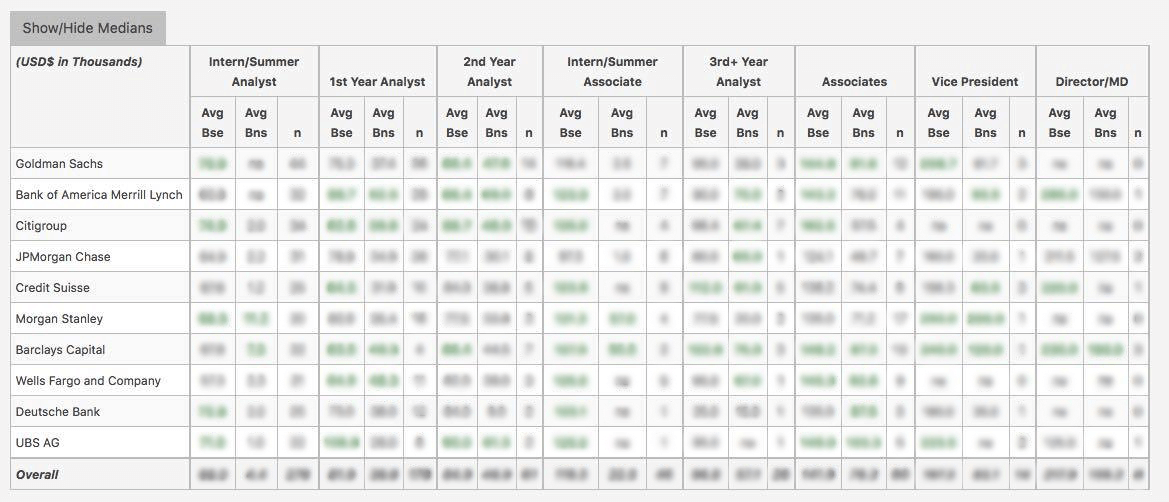1861 Capital
Overview
Overall Ranking(90%)
总体排名是根据公司在该公司当前和前任雇员的评论产生的1颗星(非常糟糕)到5星(出色)的得分。
The number you see in the middle of the donut pie chart is the simple average of these scores. If you hover over the various sections of the donut, you will see the % breakdown of each score given.
The percentile score in the title is calculated across the entire Company Database and uses an adjusted score based on Bayesian Estimates (to account for companies that have few reviews). Simply put, as a company gets more reviews, the confidence of a "true score" increases so it is pulled closer to its simple average and away from the average of the entire dataset.
The Overall Ranking is generated based on the Company Reviews.
- 5 Stars
- 4 Stars
- 3 Stars
- 2 Stars
- 1 Star
Company Details
1861 Capital is an investment firm based in New York.
1861 Capital funds are focused on opportunities in the municipal bond sector.
The dearth of supply around the holiday season and the roll-down in the yield curve (ex. 15-year bonds becoming 14-year bonds at lower yields) helped propel the market forward. Additionally, January 1st was a heavy re-investment date (many bonds were called, matured, or had coupon payments that were re-invested back in the market).
1861 Capital Definition of Municipal Bonds and Municipal Bond Losses
Municipal bonds have been around for a long time. Even before 1861. Historically municipal debt predates corporate debt by several centuries: the early Renaissance Italian city-states borrowed money from major banking families. Borrowing by American cities dates to the seventeenth century; records of U.S. municipal bonds indicate use around the early 1800's, even 1861. The first recorded municipal bond, a general obligation bond was issued by the City of New York for a canal in 1812. During the 1840's, many U.S. cities were in debt; roughly by 1843 cities had about 25 million in outstanding debt. Over thenext few decades as the US expanded, there was a huge increase in the amount of municipal debt.
内战几年后,发行了重大的当地债务来建造铁路。铁路是私人公司,这些债券与当今的工业收入债券非常相似。1873年,北太平洋最大的横登陆铁路之一的建筑成本关闭了通往新资本的通道。
The largest bank of the country, which was owned by the same investor as by Northern Pacific, collapsed. Investors had losses. Smaller firms followed suit as well as the stock market. The 1873 panic and years of depression that followed put an abrupt but temporary halt to the rapid growth of municipal debt. There were many losses during this period. From this period to the Great Depression, municipal bond issuance grew at at rapid pace. The losses on municipal bonds were not as great as the 1870's.
In addition to the 50 states and their local governments (including cities, counties, villages and school districts), the District of Columbia and U.S. territories and possessions (American samoa, the commonwealth of Puerto Rico, Guam, the Northern Mariana Islands, and the U.S. virgin Islands) can and do issue municipal bonds. Another important category of municipal bond issuers includes authorities and special districts, which have grown in number and variety in recent years.
The two most prominent early authorities were the Port of New York Authority, formed in 1921 and renamed Port Authority of New York and New Jersey in 1972, and the Triborough Bridge Authority (now the Triborough Bridge and Tunnel Authority), formed in 1933. The debt issues of these two authorities are exempt from federal, state and local government's taxes.
In economics and finance, arbitrage is the practice of taking advantage of a price difference between two or more markets: striking a combination of matching deals that capitalize upon the imbalance, the profit being the difference between the market prices. In municipal arbitrage, the difference relates to the two yield curves, the municipal yield curve and the taxable yield curve. In theory, losses on one yield curve should be offset by gains on another yield curve. In practice investors can have gains in both and losses in both municipal arbitrage yield curves. The municipal bond arbitrage strategy uses leverage and complex hedging techniques. There are many risks to understand. Municipal bond arbitrage is a hedge fund strategy and should not be compared to owning traditional muncipal bonds. The use of leverage can magnify lossess and gains
Locations
30洛克菲勒广场
New York,纽约10112
United States
Get Full Access

Recent interviews
View all| Year | Position | Location | 小组/部门 | Experience | Difficulty |
|---|---|---|---|---|---|
| 2017 | AUDIT INTERN | 宜人的山 | 通才 | Very Negative | 容易 |
| 2015 | 3rd+ Year Analyst | New York | Restructuring | Neutral | Difficult |
| 2017 | Student / Prospective Monkey | Shanghai | 万博app网页版 | Neutral | Average |
| 2015 | 实习生 | New York | 通才 | Neutral | Average |
| 2016 | Business Anaylst | New York | 万博app网页版 | Neutral | Average |






或者Want toSign upwith your social account?